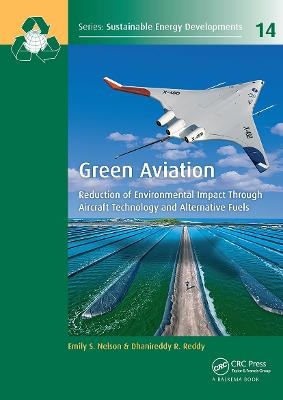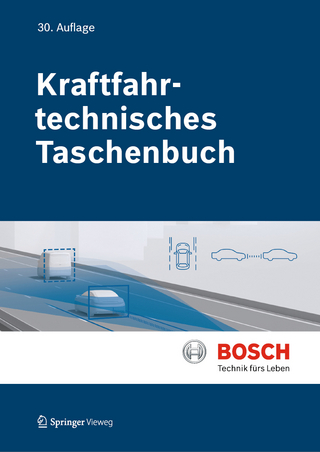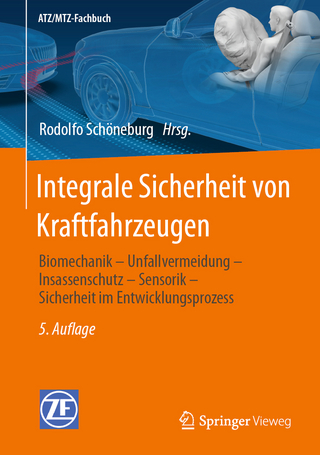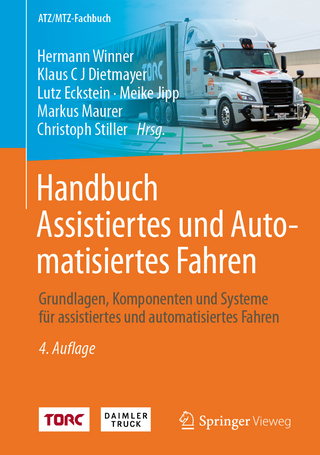
Green Aviation
CRC Press (Verlag)
978-0-415-62098-7 (ISBN)
This book comprehensively covers the relevant issues in green aviation. Environmental impacts, technology advances, public policy and economics are intricately linked to the pace of development that will be realized in the coming decades. Experts from NASA, industry and academia review current technology development in green aviation that will carry the industry through 2025 and beyond. This includes increased efficiency through better propulsion systems, reduced drag airframes, advanced materials and operational changes. Clean combustion and emission control of noise, exhaust gases and particulates are also addressed through combustor design and the use of alternative fuels. Economic imperatives from aircraft lifetime and maintenance logistics dictate the drive for "drop-in" fuels, blending jet-grade and biofuel. New certification standards for alternative fuels are outlined. Life Cycle Assessments are used to evaluate worldwide biofuel approaches, highlighting that there is no single rational approach for sustainable buildup. In fact, unless local conditions are considered, the use of biofuels can create a net increase in environmental impact as a result of biofuel manufacturing processes. Governmental experts evaluate current and future regulations and their impact on green aviation. Sustainable approaches to biofuel development are discussed for locations around the globe, including the US, EU, Brazil, China and India.
Emily S. Nelson is a research engineer at the NASA Glenn Research Center (GRC) specializing in interdisciplinary research at the intersection of fluid mechanics and heat transport, materials science, biology and/or human physiology. She received her B.S. in Mechanical Engineering from the Illinois Institute of Technology, Chicago, IL (1983); M.S. in Mechanical Engineering from the Illinois Institute of Technology (1986); and her Ph.D. in Mechanical Engineering from the University of California at Berkeley (1998). Dr. Nelson has been employed as a research engineer by NASA GRC since 1989. She is conducting numerical simulations of industrial algae growth processes, which combine hydrodynamics with biokinetics to evaluate and develop system designs and operating protocols for biomass yield, consumption of waste CO2 generated by a power plant, and power requirements. Dhanireddy Ramalinga "D.R" Reddy, Chief of the Aeropropulsion Division at NASA Glenn Research Center , Cleveland, Ohio, is responsible for providing enabling capabilities to the aerospace community by leading research and developing technology in the areas of turbomachinery, combustion, fuels/propellants, icing, inlets, nozzles, propulsion system simulation, engine systems, and computational methods. He received his Bachelor of Engineering in Mechanical Engineering (1971) from Sri Venkateswara University, A. P., India; Master of Engineering in Aeronautical Engineering (1974) from Indian Institute of Science, Bangalore; and Ph.D. in Aerospace Engineering (1983) from the University of Cincinnati. Dr. Reddy joined NASA GRC in 1991, serving as Chief of the Computational Fluid Dynamics Branch and Senior Consultant, and focusing research on developing a predictive capability to accurately simulate the complex flow features of advanced aerospace propulsion systems.
Part I. Environmental Impacts of Aviation
1. Noise Emissions from Commercial Aircraft
2. Aircraft Emissions: Gaseous and Particulate
3. Impact of Fuel Burn on Greenhouse Gases
Part II. Technologies To Mitigate Environmental Impacts
4. Noise Mitigation Strategies
5: Lightweight Materials for Airframe and Propulsion Systems
6: Clean Combustion and Emission Control
7: Air Space Systems Technologies
Part III – Alternative Fuels
8: Introduction to Alternative Fuels
9: Fuel Life Cycle Analysis and Carbon Footprint
10: Current Biomass Options for Alternative Fuels
11: Near-Term Alternative Fuels
12: Future Biofuels
13: Biomass Refining for Manufacture of Aviation Fuel
14: Certification of Biofuels
Part IV – Societal Impacts of Green Aviation
15: The Role of Public Policy in the Development of Green Aviation
16: Economics of Alternative Fuels
17: Perspectives on the Future of Green Aviation
| Erscheint lt. Verlag | 7.9.2017 |
|---|---|
| Reihe/Serie | Sustainable Energy Developments |
| Verlagsort | London |
| Sprache | englisch |
| Maße | 174 x 246 mm |
| Gewicht | 929 g |
| Themenwelt | Technik ► Fahrzeugbau / Schiffbau |
| Technik ► Luft- / Raumfahrttechnik | |
| Technik ► Umwelttechnik / Biotechnologie | |
| ISBN-10 | 0-415-62098-8 / 0415620988 |
| ISBN-13 | 978-0-415-62098-7 / 9780415620987 |
| Zustand | Neuware |
| Haben Sie eine Frage zum Produkt? |
aus dem Bereich


